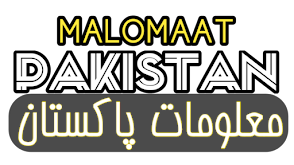EU-Funded Scholarships: Your Gateway to European Education
European universities have really good degrees. But, for people from other countries, the fees can be too high. That's where EU-funded scholarships can help. They give money to help people study in Europe.
Here's what you'll find in this article:
- EU Funding Programs for Education
- National Scholarships with EU Co-Funding
- Scholarships for Specific Regions and Fields
- How to Find and Apply for EU-Funded Scholarships
- FAQs
- Conclusion
EU Funding Programs for Education
The EU wants to help students study and do research across Europe. They have different programs to give scholarships and grants to students:
Erasmus+: This is a big program that helps students study in different European countries. It also offers money for students with disabilities and those from countries outside the EU.
Marie Skłodowska-Curie Actions (MSCA): This program is for researchers. It helps doctoral and postdoctoral researchers do research in Europe.
Horizon Europe: This program is all about research and innovation. It gives money for researchers at any stage of their career to work on big global issues.
National Scholarships with EU Co-Funding
Many EU countries offer their own scholarships, with some help from the EU. These scholarships are often for students from certain places or studying certain subjects. For example:
- The Eiffel Excellence Scholarship Programme: France gives this to top international students studying at Master's or PhD level in specific areas.
- The Deutschlandstipendium: Germany offers this to talented international students at any degree level.
- The Emile Boutmy Scholarships: Sciences Po in France offers these to non-EU Master's students in social science and humanities subjects.
Scholarships for Specific Regions and Fields
The EU also helps students from certain areas and studying certain subjects. For instance:
- Erasmus+ Mundus Joint Master Degrees: These are special Master's programs from a group of European universities. They often cover tuition fees and living costs.
- Scholarships for the Western Balkans: The EU gives scholarships to students from there to study in EU countries.
- Scholarships for African, Caribbean, and Pacific (ACP) Countries: The EU helps students from these places to study in Europe.
How to Find and Apply for EU-Funded Scholarships
To get an EU-funded scholarship, you need to:
- Check if you meet the requirements for each scholarship.
- Follow the application process for each one. This might mean applying directly to the program or through your own university.
- Make sure you don't miss any deadlines!
FAQs
- Can I apply for more than one EU-funded scholarship? Yes, you can, as long as you meet the requirements for each one.
- Do I need to be really good at English to apply? Many scholarships need you to be good at English, especially if the program is in English. But sometimes, you might need to know the local language too.
- What's good about studying abroad with an EU-funded scholarship? It helps with money, of course. But it also lets you experience new cultures, boosts your academic record, and helps with your career.
Conclusion
Getting an EU-funded scholarship takes work, but it's worth it. Start looking early, find the right program for you, and put together a strong application. Studying with one of these scholarships can change your life. So, don't wait. Start your journey to European education today!

.jpeg)


.jpeg)




.png)

